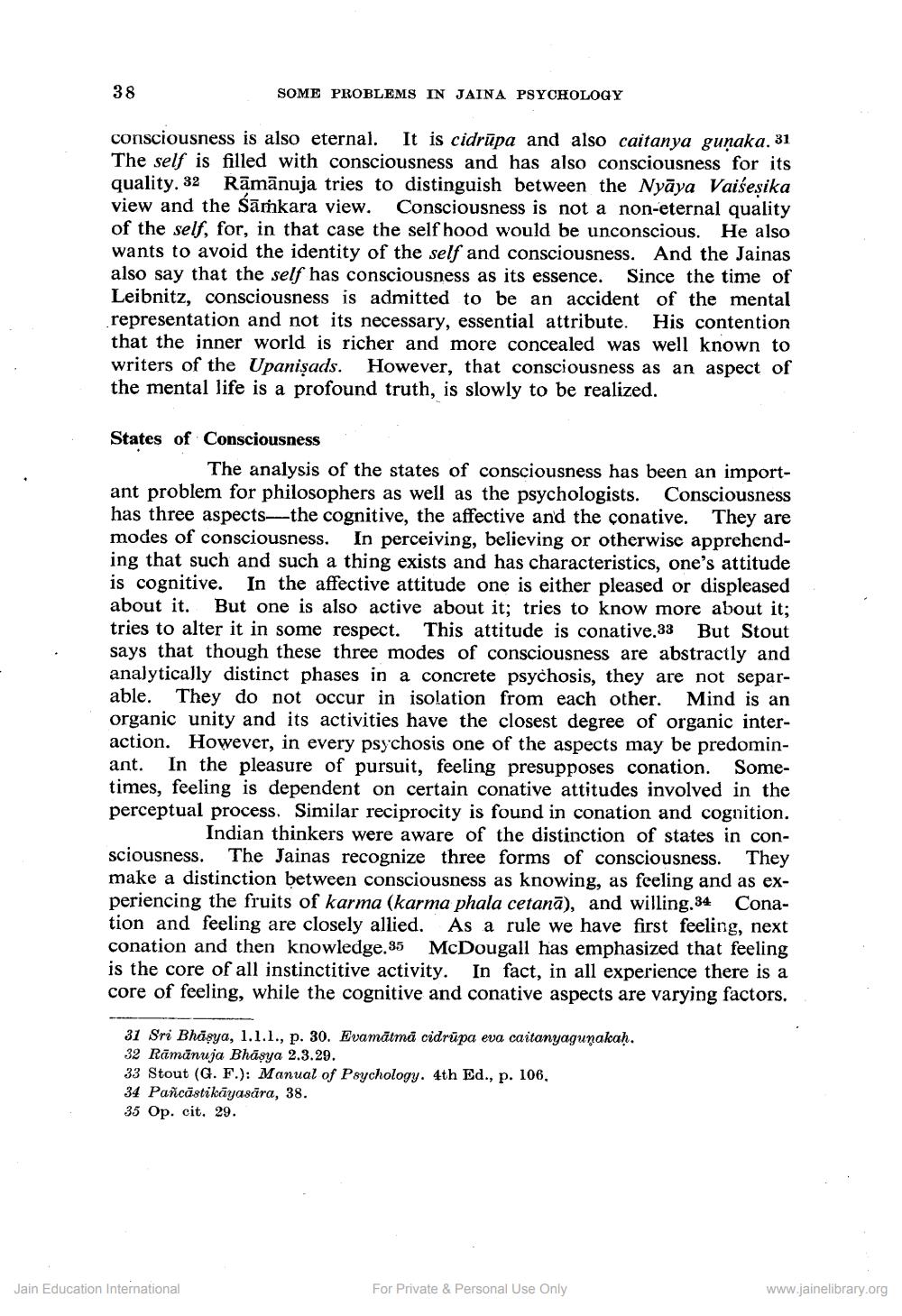________________
38
SOME PROBLEMS IN JAINA PSYCHOLOGY
consciousness is also eternal. It is cidrūpa and also caitanya gunaka. 31 The self is filled with consciousness and has also consciousness for its quality. 32 Ramanuja tries to distinguish between the Nyaya Vaiseṣika view and the Samkara view. Consciousness is not a non-eternal quality of the self, for, in that case the self hood would be unconscious. He also wants to avoid the identity of the self and consciousness. And the Jainas also say that the self has consciousness as its essence. Since the time of Leibnitz, consciousness is admitted to be an accident of the mental representation and not its necessary, essential attribute. His contention that the inner world is richer and more concealed was well known to writers of the Upaniṣads. However, that consciousness as an aspect of the mental life is a profound truth, is slowly to be realized.
States of Consciousness
The analysis of the states of consciousness has been an important problem for philosophers as well as the psychologists. Consciousness has three aspects-the cognitive, the affective and the conative. They are modes of consciousness. In perceiving, believing or otherwise apprehending that such and such a thing exists and has characteristics, one's attitude is cognitive. In the affective attitude one is either pleased or displeased about it. But one is also active about it; tries to know more about it; tries to alter it in some respect. This attitude is conative.33 But Stout says that though these three modes of consciousness are abstractly and analytically distinct phases in a concrete psychosis, they are not separable. They do not occur in isolation from each other. Mind is an organic unity and its activities have the closest degree of organic interaction. However, in every psychosis one of the aspects may be predominant. In the pleasure of pursuit, feeling presupposes conation. Sometimes, feeling is dependent on certain conative attitudes involved in the perceptual process. Similar reciprocity is found in conation and cognition. Indian thinkers were aware of the distinction of states in consciousness. The Jainas recognize three forms of consciousness. They make a distinction between consciousness as knowing, as feeling and as experiencing the fruits of karma (karma phala cetanā), and willing.34 Conation and feeling are closely allied. As a rule we have first feeling, next conation and then knowledge.35 McDougall has emphasized that feeling is the core of all instinctitive activity. In fact, in all experience there is a core of feeling, while the cognitive and conative aspects are varying factors.
31 Sri Bhasya, 1.1.1., p. 30. Evamātmā cidrupa eva caitanyagunakaḥ.
32 Ramanuja Bhāṣya 2.3.29.
33 Stout (G. F.): Manual of Psychology. 4th Ed., p. 106.
34 Pañcästikäyasāra, 38. 35 Op. cit. 29.
Jain Education International
For Private & Personal Use Only
www.jainelibrary.org




